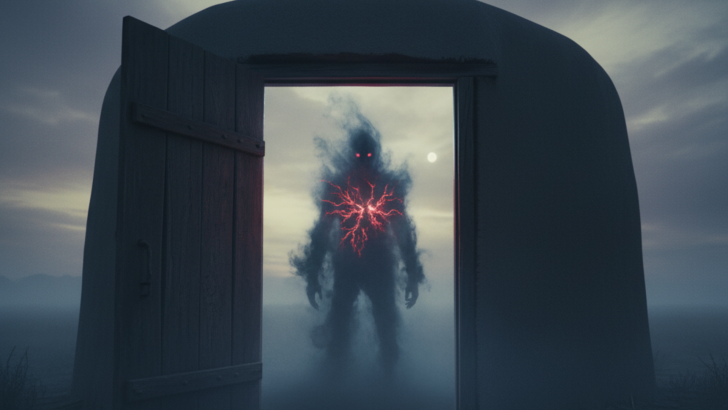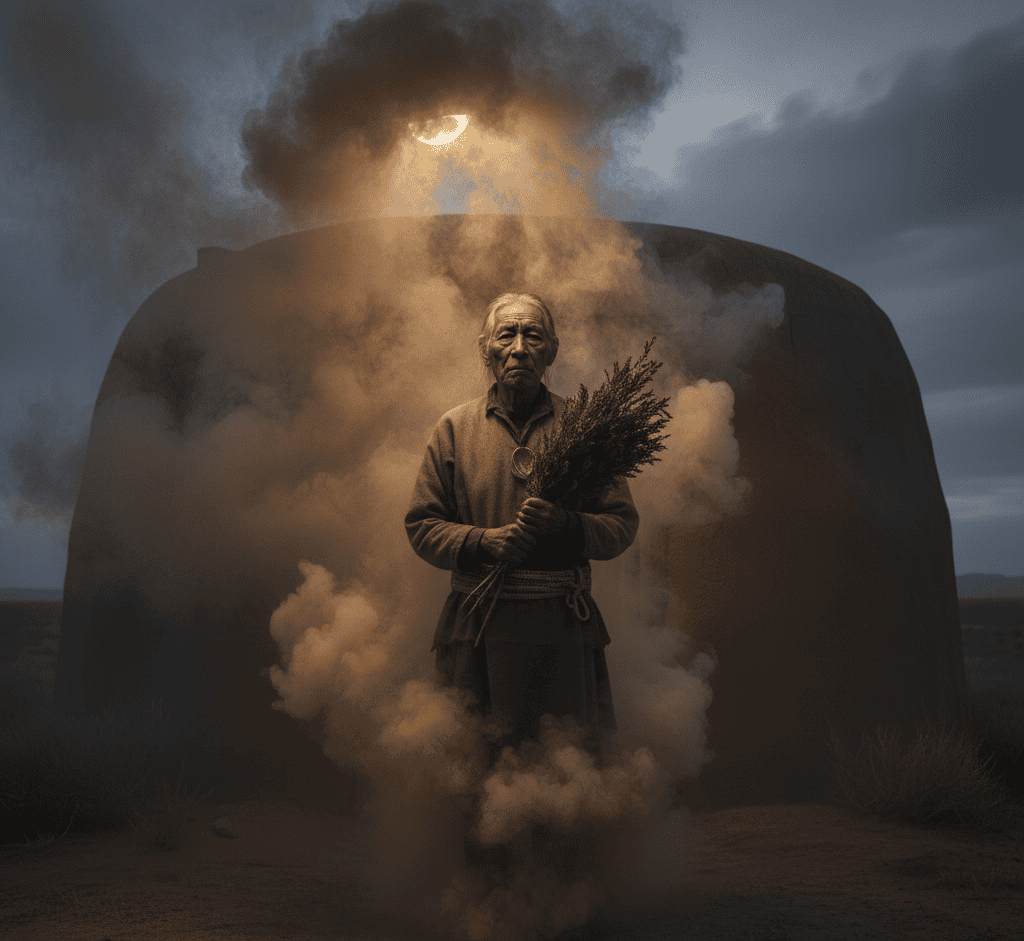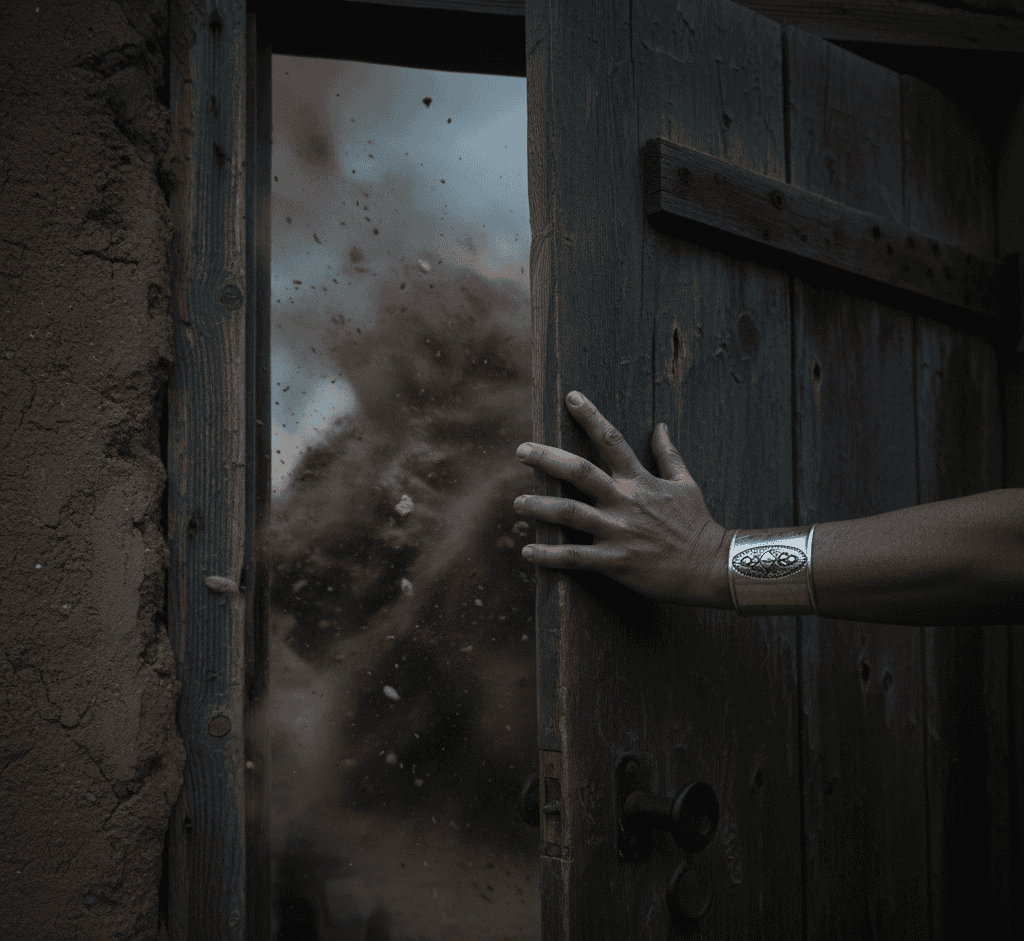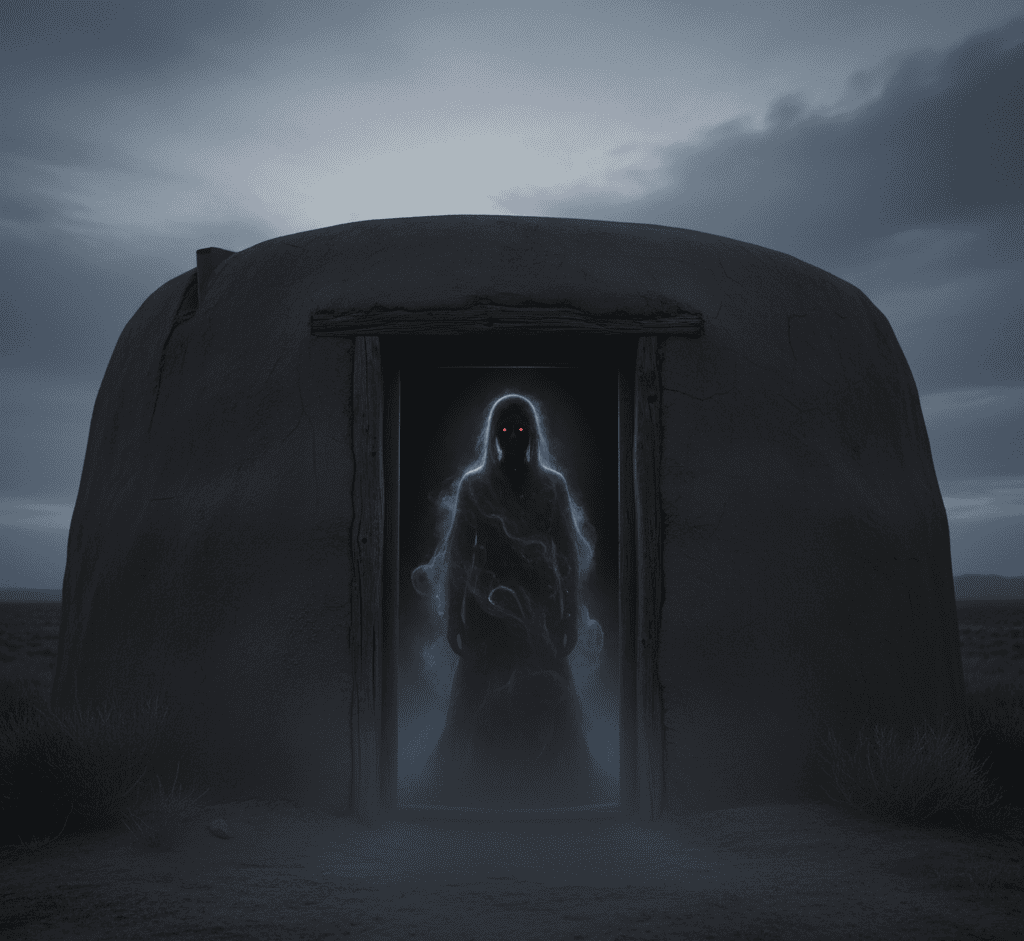When a person dies, not everything always leaves with them. The Navajo believe that a part of the soul, known as the Chindi, stays behind.
It carries the worst parts of a person, the anger, the sorrow, the sickness, and it lingers near the place of death.
The Chindi waits at the doorway, restless and unfinished, a shadow that reminds the living how delicate the line between life and spirit truly is.
The Ghost Left Behind
In Navajo tradition, death is never taken lightly. It is not simply an ending but a transformation, and if that transformation goes wrong, something dark can be left behind.
The Chindi is that remnant. It is not a ghost in the usual sense but a fragment of the self that refuses to move on.
When a person dies suddenly or violently, their spirit may be shocked, unprepared to cross into the next world.
What remains is the Chindi, and it holds everything that person could not release: their bitterness, their pain, their unfinished emotions.
The Navajo say this part of the spirit stays near the place of death, especially near doorways or windows, because those are the passages between worlds.
The Chindi doesn’t usually hunt people or cause chaos like ghosts from horror stories.
It lingers, almost patiently, and waits for someone to come too close. To encounter a Chindi is to feel a deep chill or to sense that the air has turned heavy.
Sometimes, people become sick after contact with one, as if the spirit’s leftover suffering can cling to the living.
For this reason, Navajo families will often abandon the home where someone has died, sealing the door so that no one enters again.
The Rules of Death
Because of the fear of leaving a Chindi behind, the Navajo follow strict practices around death and burial.
When someone dies indoors, their body is often removed through a special hole cut into the wall, not through the main door.
This opening is then sealed forever. The purpose is to give the spirit a clear path to leave without returning to the home.
After the burial, people who attended must purify themselves with ritual cleansing, often using cedar smoke.
They do not speak the name of the deceased again, as this could call the Chindi back. Even mentioning the place of death is avoided.
To outsiders, this can seem harsh, but to the Navajo, it is an act of deep respect. It protects both the living and the spirit, ensuring that what must go on can do so peacefully.
The Chindi is seen as a warning against imbalance. In life, one must strive to live harmoniously, because every act of anger or bitterness could become part of the Chindi after death.
Living well is the best protection against leaving a restless spirit behind. This belief ties morality, health, and spirit together in a way that keeps community and nature in balance.
The Spirit at the Door
Many stories speak of people who have felt the presence of a Chindi near their homes. It often begins with a knock at the door or a whisper in the wind.
When someone opens it, there is nothing there. Only the faint scent of earth and dust. Some say the Chindi takes the shape of wind itself, moving unseen but always felt.
In one tale, an old warrior returned home from a long battle, only to fall ill at his doorway.
His family cared for him, but when he died, a strong gust swept through the house, scattering ashes and embers.
The elders said his Chindi had left him at that moment, carried away by the wind. The home was abandoned, its door closed forever.
To this day, locals claim that a strange breeze circles the place, even on still nights.
The Chindi’s connection to wind is deeply symbolic. In Navajo belief, the breath is sacred. It carries life, voice, and thought.
When a person dies, their final breath may carry away the Chindi. That is why the wind is often silent after death, as if holding the last whispers of a soul unsure where to go.
Some medicine people say that if you listen closely at the moment of passing, you might hear the faint sound of a spirit deciding whether to leave or stay.
The Lesson in the Wind
The Chindi is not a story meant only to frighten. It is a reminder of how important balance is in Navajo life.
The world is not divided sharply between good and evil but kept whole through harmony.
Illness, misfortune, and unrest are signs of imbalance, and death that leaves behind a Chindi is the ultimate imbalance.
By respecting death and speaking carefully about it, the Navajo keep that harmony intact.
The Chindi teaches that our actions in life echo long after we are gone. If we carry resentment, cruelty, or pride, those feelings may outlast our bodies.
To live with kindness and humility is to ensure that no shadow remains at the door when we leave this world.
When night falls across the desert and the wind hums through the canyons, people still say the Chindi travels on that breath of air, searching for an open door.
But it does not come for revenge; it drifts as a whisper of warning. The living must remember to close their doors, both in their homes and in their hearts, against the unfinished business of the past.
Because in the quiet between one breath and the next, a Chindi might still be waiting.

Sempre senti uma forte ligação com o Divino desde o meu nascimento. Como autora e mentora, a minha missão é ajudar os outros a encontrar o amor, a felicidade e a força interior nos momentos mais sombrios.





